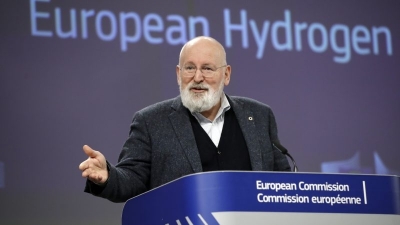EHDS is not just an agreement; it’s a promise to patients and researchers, says Vandenbroucke

The collaborative efforts of Belgian Health Minister Frank Vandenbroucke and MEP Tomislav Sokol have brought Europe’s ambition to establish a European Health Data Space (EHDS) to a pivotal moment, culminating in a provisional agreement empowering patients and researchers with health data.
The EHDS, as a key piece of legislation, aims to enhance health data availability and exchange safeguarding individual privacy, and advancing healthcare and scientific research for societal benefit. It facilitates cross-border health data exchange, improving care quality and continuity while ensuring citizens’ rights to access, control, and decide on data sharing across Europe.
Additionally, it promotes data reuse for public health policy and research while upholding privacy standards. “As we navigated the complexities of the negotiations, it was imperative to strike a delicate balance between promoting innovation and safeguarding individual privacy rights,” MEP and co-rapporteur Sokol told Euractiv.
Sokol added that the goal is to ensure that every citizen’s health data is treated with the utmost care and respect, fostering trust in Europe’s digital healthcare ecosystem.
Challenging road to agreement
The road to the provisional agreement encountered hurdles as privacy concerns intersected with the transformative promise of health data. Policymakers wrestled with the delicate balance of preserving individual privacy rights while fostering scientific advancement.
Vandenbroucke told Euractiv that Belgium, which currently holds the Presidency of the Council of the European Union, managed a challenging discussion with an unwavering commitment to finding common ground.
Key changes to the original text were agreed upon, including opt-out options for patients regarding data access and secondary use, with exceptions for public interest, policy-making, statistics, and research.
Patients can also limit healthcare professionals’ access to vital data and member states can enforce stricter measures for sensitive data like genetic information. Trusted data holders may be appointed by member states to handle data access requests securely.
Additionally, if researchers uncover clinically significant findings, health data access bodies must inform trusted data holders, who then notify patients or relevant healthcare professionals.
Power to the patients
Patients will be able to opt out of having their health data accessed by healthcare professionals or for secondary use, with exceptions for public interest. This provision grants individuals the right to control the use of their health data, ensuring that they have autonomy over their personal information.
However, the concept of ‘public interest’ raised significant questions. “We are pleased that there has been a thorough discussion about the secondary use of data, and we all welcome its recognition as important,” said Karen Crabbé of pharma.be.
Pharma.be which represents approximately 130 innovative pharmaceutical companies in Belgium, expressed concerns regarding the opt-out provision, suggesting a potential lack of trust in the industry and the need for substantial efforts to educate and build trust.
“There is a risk that trust could be undermined, particularly with the spread of fake news leading to mass opt-outs,” Crabbé told Euractiv, underscoring the criticality of data pseudonymisation. She stressed the imperative for trust-building and education, highlighting the significant work required in these domains.
Trust: the bedrock of healthcare
Minister Vandenbroucke emphasised to Euractiv the importance of trust: “At the heart of our healthcare system lies the trust of our citizens. We must explain to citizens why it is important to share health data, for example, for developing new therapies.”
“Empowering patients is crucial, and this involves not only granting them control over their health data but also equipping them with the knowledge and tools to use digital resources effectively,” commented health tech entrepreneur Hans Constandt, Founder & CEO of FAQIR Foundation and FAQIR Institute.
Advancing research
“The EHDS is crucial for both patients and researchers. We hope and expect that it will facilitate answering important research questions, where the integration of complex data and pieces of information is needed to solve the increasing complexity of research challenges and interactions,” Prof Dr Eric Van Cutsem, President of the Belgian Cancer Foundation, told Euractiv.
Isabelle Decker, General Manager of Roche Diagnostics Belgium, told Euractiv: “Health data is the most powerful tool we have for deepening our understanding of human health. Data makes R&D smarter, diagnosis faster and, ultimately, leads to the discovery of more effective, targeted ways of treating disease.”
Supporting patient care and scientific research
Vandenbroucke remarked: “The EHDS is not merely an agreement; it’s a promise—a promise to both patients and researchers. By strongly supporting patient care and scientific research in the public interest, the EHDS empowers individuals while advancing medical knowledge.” He explained it as a seamless flow of health data across borders, enabling timely diagnoses, evidence-based treatments, and informing policymaking – connecting healthcare delivery with research insights.”
Once adopted during the final plenary session in April, the EHDS regulation will come into force on the twentieth day following its publication, with application beginning twelve months thereafter.
[Nicole Verbeeck, Edited by Vasiliki Angouridi, Brian Maguire | Euractiv’s Advocacy Lab]
Read more with Euractiv



